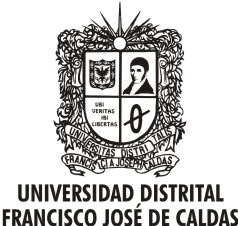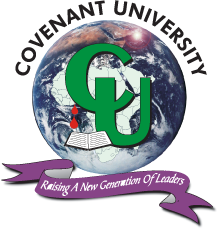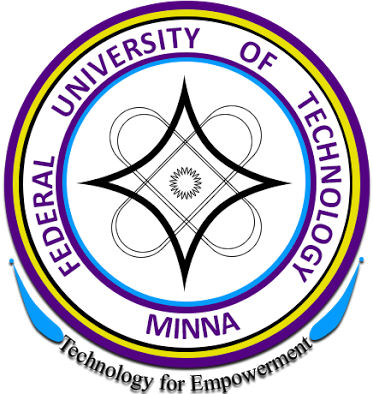
Third International Conference on Applied Informatics
29 to 31 October 2020
Covenant University, Ota, Nigeria ONLINE
Keynote Speakers for ICAI 2020

Rajkumar Buyya
Dr. Rajkumar Buyya is a Redmond Barry Distinguished Professor and
Director of the Cloud Computing and Distributed Systems (CLOUDS)
Laboratory at the University of Melbourne, Australia. He is also
serving as the founding CEO of Manjrasoft, a spin-off company of the
University, commercializing its innovations in Cloud Computing. He
has authored over 750 publications and seven text books including
"Mastering Cloud Computing" published by McGraw Hill, China Machine
Press, and Morgan Kaufmann for Indian, Chinese and international
markets respectively. Dr. Buyya is one of the highly cited authors in
computer science and software engineering worldwide (h-index=135,
g-index=300, 97, 100+ citations). "A Scientometric Analysis of Cloud
Computing Literature" by German scientists ranked Dr. Buyya as the
World's Top-Cited (#1) Author and the World's Most-Productive (#1)
Author in Cloud Computing. Dr. Buyya is recognised as Web of Science
“Highly Cited Researcher” for four consecutive years since 2016, IEEE
Fellow, Scopus Researcher of the Year 2017 with Excellence in
Innovative Research Award by Elsevier, and the “Best of the World”,
in Computing Systems field, by The Australian 2019 Research Review.
Software
technologies for Grid, Cloud, and Fog computing developed under
Dr.Buyya's leadership have gained rapid acceptance and are in use at
several academic institutions and commercial enterprises in 50
countries around the world. Dr. Buyya has led the establishment and
development of key community activities, including serving as
foundation Chair of the IEEE Technical Committee on Scalable
Computing and five IEEE/ACM conferences. These contributions and
international research leadership of Dr. Buyya are recognized through
the award of "2009 IEEE Medal for Excellence in Scalable Computing"
from the IEEE Computer Society TCSC. Manjrasoft's Aneka Cloud
technology developed under his leadership has received "Frost and
Sullivan New Product Innovation Award". He served as founding
Editor-in-Chief of the IEEE Transactions on Cloud Computing. He is
currently serving as Editor-in-Chief of Software: Practice and
Experience, a long standing journal in the field established ~50
years ago.
Keynote: New Frontiers in Cloud and Edge Computing for Big Data & Internet-of-Things Applications
Abstract: Computing is being transformed to a model
consisting of services that are delivered in a manner similar to
utilities such as water, electricity, gas, and telephony. In such a
model, users access services based on their requirements without
regard to where the services are hosted or how they are delivered.
Cloud computing paradigm has turned this vision of "computing
utilities" into a reality. It offers infrastructure, platform, and
software as services, which are made available to consumers as
subscription-oriented services. Cloud application platforms need to
offer (1) APIs and tools for rapid creation of elastic applications
and (2) a runtime system for deployment of applications on
geographically distributed computing infrastructure in a seamless
manner.
The Internet of Things (IoT) paradigm enables seamless
integration of cyber-and-physical worlds and opening up opportunities
for creating new class of applications for domains such as smart
cities and smart healthcare. The emerging Fog/Edge computing paradigm
is extends Cloud computing model to edge resources for latency
sensitive IoT applications with a seamless integration of
network-wide resources all the way from edge to the Cloud.
This
keynote presentation will cover (a) 21st century vision of computing
and identifies various IT paradigms promising to deliver the vision
of computing utilities; (b) innovative architecture for creating
elastic Clouds integrating edge resources and managed Clouds, (c)
Aneka, a Cloud Application Platform, for rapid development of
Cloud/Big Data applications and their deployment on private/public
Clouds with resource provisioning driven by SLAs, (d) a novel FogBus
software framework with Blockchain-based data-integrity management
for facilitating end-to-end IoT-Fog/Edge-Cloud integration for
execution of sensitive IoT applications, (e) experimental results on
deploying Cloud and Big Data/ IoT applications in engineering, and
health care, satellite image processing, and smart cities on elastic
Clouds; and (f) directions for delivering our 21st century vision
along with pathways for future research in Cloud and Edge/Fog
computing.

Juanlu J. Laredo
Juanlu J. Laredo received his Ph.D. in Computer Science in 2010 from the University of Granada (Spain) with a thesis entitled “Peer-to-Peer Evolutionary Computation: A Study of Viability”. He was a postdoctoral fellow at the University of Luxembourg (Luxembourg) before being appointed as a tenured Associate Professor at the University of Le Havre Normandy (France) where he currently works. His main research interests focus on nature-inspired problem solving and complex systems, being particularly interested in applications domains such as energy-efficiency, post-disaster relief and neuroscience. He has authored over 80 publications in peer-reviewed international journals, proceedings of international conferences and book chapters.
Keynote: A gentle introduction to computational neuroscience
Abstract: Neuroscience is certainly one of the most rapidly growing fields of research on applied informatics. In unprecedented efforts, scientific funding agencies are investing in long-term projects to unveil the mysteries behind the functioning of nervous systems. The European Human Brain Project, the Chinese China Brain project, the Japanese Brain/MINDS or the American Brain initiative are just some examples. We may find an answer to this interest in a race in which neuroscience is behind great advances in artificial intelligence, bio-inspired control systems or advances in medicine and biology. This keynote proposes a gentle introduction to all these aspects from the perspective of computational neuroscience which attempts to model nervous systems using computational support. In particular, we will exemplify the design of a conductance-based model of a neuron and show how traditional algorithms in computer science such as meta-heuristics can be applied to fine-tune these models.

Vincenzo Piuri
Vincenzo Piuri has received his Ph.D. in computer engineering at Politecnico di Milano, Italy (1989). He is Full Professor in computer engineering at the Università degli Studi di Milano, Italy (since 2000). He has been Associate Professor at Politecnico di Milano, Italy and Visiting Professor at the University of Texas at Austin and at George Mason University, USA. His main research interests are: artificial intelligence, computational intelligence, intelligent systems, machine learning, pattern analysis and recognition, signal and image processing, biometrics, intelligent measurement systems, industrial applications, digital processing architectures, fault tolerance, dependability, and cloud computing infrastructures. Original results have been published in more than 400 papers in international journals, proceedings of international conferences, books, and book chapters. He is Fellow of the IEEE, Distinguished Scientist of ACM, and Senior Member of INNS. He is President of the IEEE Systems Council (2020-21), and has been IEEE Vice President for Technical Activities (2015), IEEE Director, President of the IEEE Computational Intelligence Society, Vice President for Education of the IEEE Biometrics Council, Vice President for Publications of the IEEE Instrumentation and Measurement Society and the IEEE Systems Council, and Vice President for Membership of the IEEE Computational Intelligence Society. He is Editor-in-Chief of the IEEE Systems Journal (2013-19), and Associate Editor of the IEEE Transactions on Cloud Computing, and has been Associate Editor of the IEEE Transactions on Computers, the IEEE Transactions on Neural Networks, the IEEE Transactions on Instrumentation and Measurement, and IEEE Access. He received the IEEE Instrumentation and Measurement Society Technical Award (2002) and the IEEE TAB Hall of Honor (2019). He is Honorary Professor at: Obuda University, Hungary; Guangdong University of Petrochemical Technology, China; Northeastern University, China; Muroran Institute of Technology, Japan; and the Amity University, India.
Keynote: Artificial Intelligence in Cloud Computing and Internet-of-Things
Abstract: Recent years have seen a growing interest among users in the migration of their applications to the Cloud computing and Internet-of-Things environments. However, due to high complexity, Cloud-based and Internet-of-Things infrastructures need advanced components for supporting applications and advanced management techniques for increasing the efficiency. Adaptivity and autonomous learning abilities become extremely useful to support configuration and dynamic adaptation of these infrastructures to the changing needs of the users as well as to create adaptable applications. This self-adaptation ability is increasingly essential especially for non expert managers as well as for application designers and developers with limited competences in tools for achieving this ability. Artificial intelligence is a set of techniques which greatly can improve both the creation of applications and the management of these infrastructures. This talk will discuss the use of artificial intelligence in supporting the creation of applications in cloud and IoT infrastructures as well as their use in the various aspects of infrastructure management.
Organized by
Sponsored by
2018 - 2025 All rights reserved





